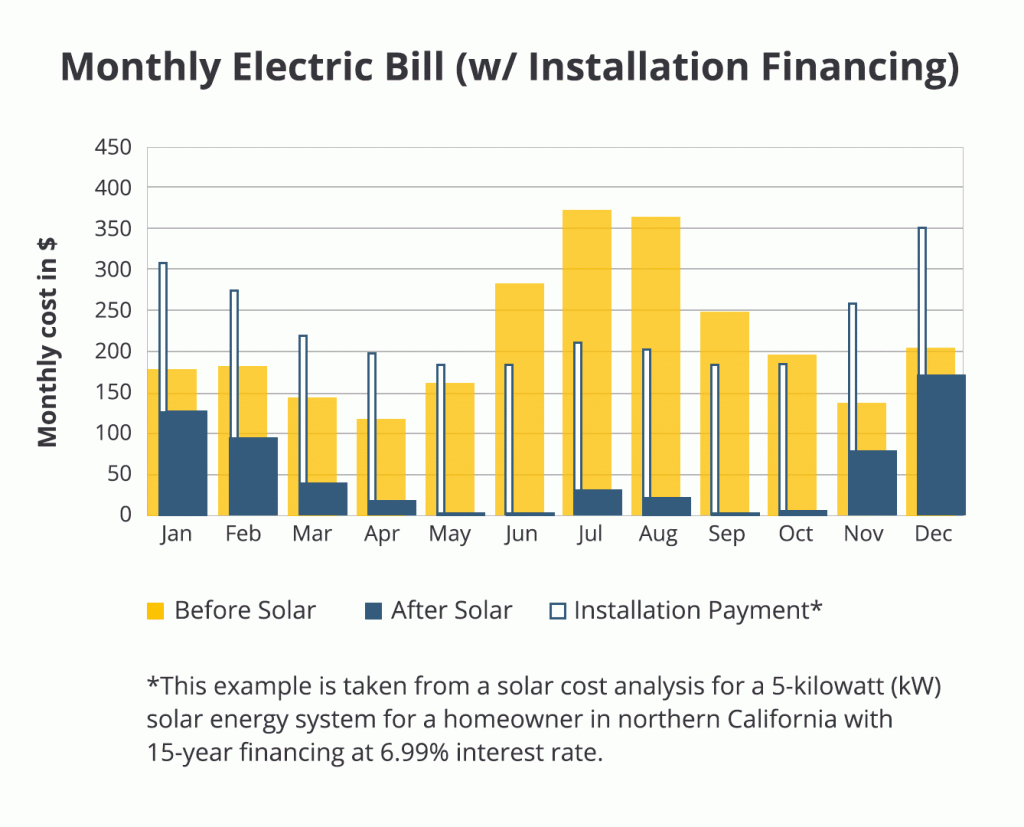Installing Solar Panels Cost | How Much Does Solar Panel Installation Cost?
When it comes to transitioning to renewable energy sources, installing solar panels is a popular and eco-friendly choice. However, one of the primary concerns for homeowners and businesses alike is the cost of solar panel installation. Understanding the factors that contribute to the overall cost can help you make an informed decision.
Factors Affecting Solar Panel Installation Cost

- System Size: The size of the solar panel system you choose will have a direct impact on the cost. Larger systems will generally require more materials and labor, resulting in a higher overall cost.
- Roof Condition: The condition and complexity of your roof can also influence the installation cost. If your roof requires repairs or modifications to accommodate the solar panels, these additional expenses should be taken into account.
- Type of Solar Panels: There are various types of solar panels available, including monocrystalline, polycrystalline, and thin-film panels. Each type comes with its own price range, efficiency, and longevity, which can affect the overall installation cost.
- Location: The location of your property plays a significant role in determining the cost of solar panel installation. Factors such as local building codes, permits, and accessibility can vary from one region to another, impacting the total cost.
- Incentives and Rebates: Government incentives, tax credits, and rebates can significantly reduce the cost of solar panel installation. It is essential to research and take advantage of any available financial incentives in your area.
Average Solar Panel Installation Costs
On average, the cost of installing solar panels can range from $10,000 to $30,000 or more, depending on the factors mentioned above. However, it is crucial to consider the long-term benefits and savings that solar energy can provide. By generating your electricity, you can potentially reduce or eliminate your monthly utility bills, offsetting the initial investment over time.
Return on Investment
While the upfront cost of solar panel installation may seem substantial, it is essential to consider the long-term return on investment (ROI). Solar panels have a lifespan of around 25 to 30 years, during which you can enjoy significant savings on your electricity bills. With rising energy costs, the ROI for solar panel installation continues to improve, making it a financially viable choice in the long run.
In conclusion, the cost of solar panel installation is influenced by several factors, including system size, roof condition, type of panels, location, and available incentives. While the initial investment may seem high, the long-term savings and environmental benefits make solar panel installation a wise choice. By harnessing the power of the sun, you can not only reduce your carbon footprint but also save money on your energy bills for years to come.
FAQ: Cost to install solar panels
How much does the average solar system cost?
The average installation of a residential solar system costs around $38,000. This solar cost can vary depending on the location of installation and the type of panels used, among other factors.
What does a typical installation entail?
A solar panel installation typically begins with an energy audit (sometimes for free) to determine how much power is required to meet energy needs. A professional will go through the home and examine its features, such as where windows are located in relation to the roof or how big the garage door is in order to determine whether adding solar panels would be feasible. Once approved, technicians will install the necessary components including inverters, wires, and batteries (if compatible). Some states also require installation permits before work can begin. Other costs that may be involved include installation labor, land use fees, and interconnection installation.
When to install solar panels?
There is no specific time to install solar panels. These systems are typically installed one at a time as the homeowner can afford them. In some cases, installation may be paid for through a third party, such as a leasing company or power provider, who will own the solar installation and sell energy back to the homeowner under a long-term contract agreement.
If the installation is paid for by the owner, a long-term savings plan should be considered to ensure installation costs are covered.
How many solar panels do I need?
The size of a solar installation depends on how much energy is required and how much space is available on the property. In order to determine the suitability of installation, an energy audit will be conducted. Generally speaking, however, homeowners can expect anywhere from 2 kW to 8 kW of power from a small installation or 25 kW – 100 kW from a large installation.
